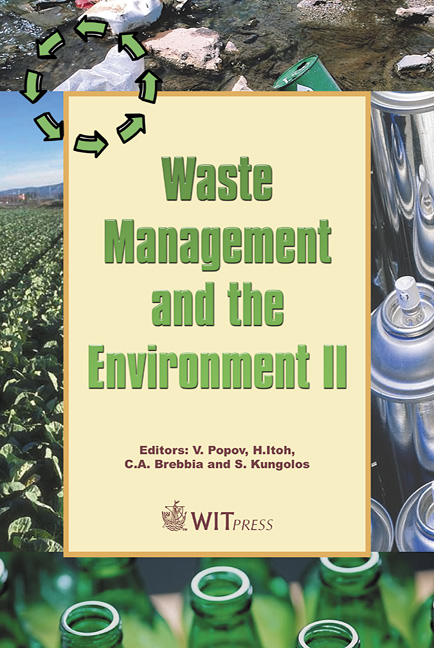Assessing The Potential Of Composting Sludge Generated By Hotels In Mauritius In View Of Bioremediating Oil Contaminated Soils
Price
Free (open access)
Transaction
Volume
78
Pages
10
Published
2004
Size
273 kb
Paper DOI
10.2495/WM040261
Copyright
WIT Press
Author(s)
R. Mohee & S. Mootoosawmy
Abstract
There are around 87 hotels in Mauritius, out of which 46 have more than 75 rooms and are required as per EPA 2002 to treat wastewater before discharge to the sea. Around 44 wastewater treatment plants in hotels on the island produce around 7000 m3 of sludge on a daily basis. Currently, the sewage sludge is dried on site and sent to the landfill. The main objectives of this study were to assess the potential of sewage sludge composting and to assess the feasibility of bioremediating oil contaminated soils with the final compost produced. Composting of sewage sludge and wood chips in the ratio of 6:1 was carried out in composters set at the Sugar Beach hotel. The composting process was monitored for 60 days. Thermophilic temperatures were reached and maintained for more than one week. A decrease of 48.7% in volatile solids, 27% in moisture content and a volume reduction of 45% were observed. The final compost had a water holding capacity of 11.46, a NPK content of 3.4%, 0.82% and 1.89% respectively, a pH of 6.8 Shigellaand an electrical conductivity of 1.8 mmhos/cm. Common pathogens such as Salmonella, E. coli and were absent from the matured compost and heavy metals were well below limits set by international standards. Bioremediation involved composting the oil-contaminated soil with finished compost. It was observed that frequent turning and mixing of the compost pile was required. After 30 days of composting, 50.8% of oil was degraded and volatile solids content decreased by 24.9%, showing that the degradation of oils by finished compost was effective. Keywords: sludge composting, hotel, wastewater treatment, bioremediation, compost quality, oil-contaminated soil.
Keywords
sludge composting, hotel, wastewater treatment, bioremediation, compost quality, oil-contaminated soil.





